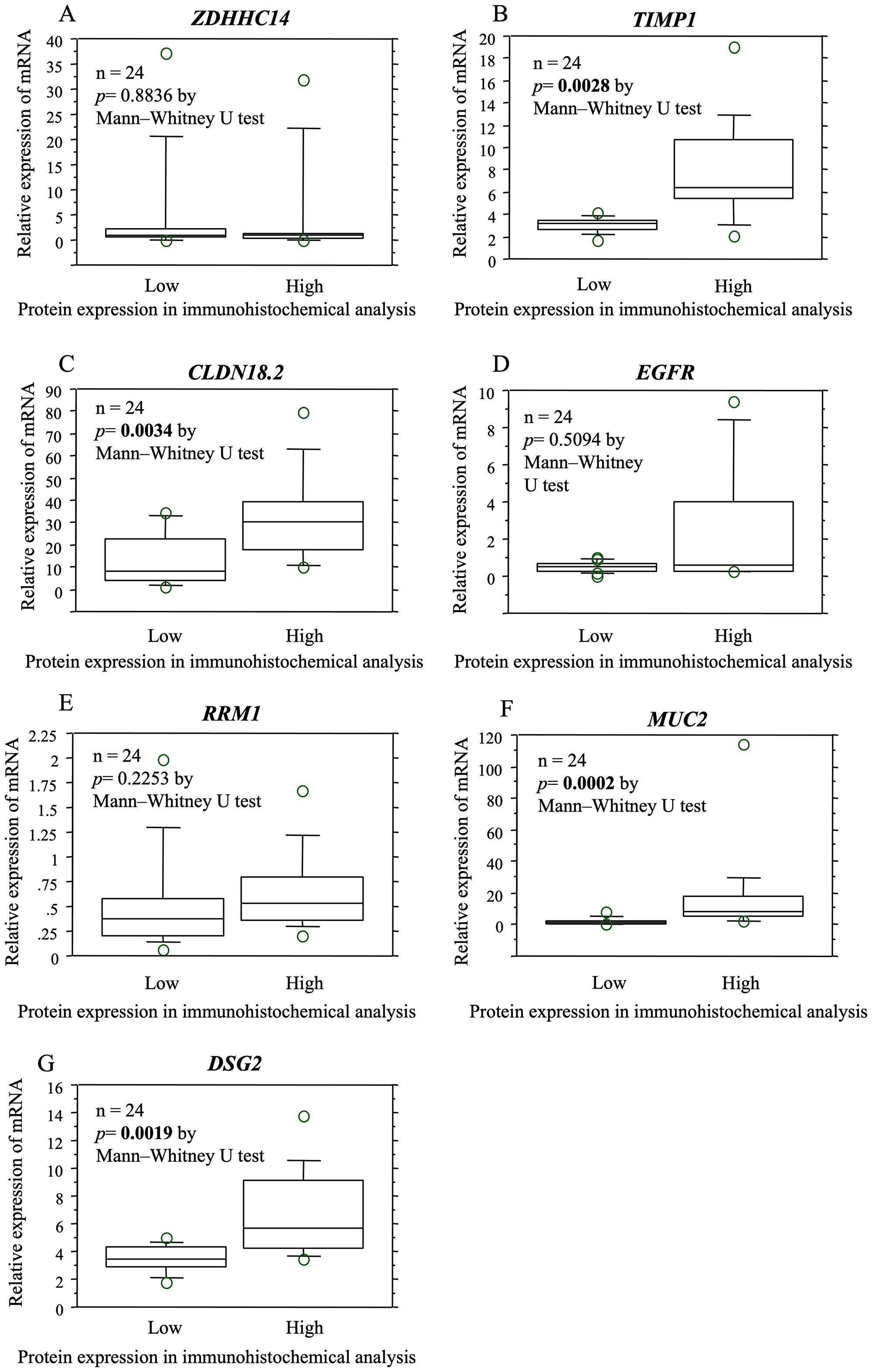Oncotarget Volume 11, Issue 30 reported that the authors hypothesized that if relevant biomarkers could be used to predict the suitable NAC regimen before treatment initiation, further improvements could be ensured in the outcomes of locally advanced GC.
mRNA extraction, real-time polymerase chain reaction, and immunohistochemical analyses were performed using endoscopic biopsy specimens of primary tumors, collected prior to NAC, to determine the clinically relevant biomarkers.
TIMP1, DSG2, RRM1, MUC2, EGFR, ZDHHC14, and CLDN18.2 were identified as biomarker candidates, since their expression was significantly associated with the pathological responses to each NAC regimen.
Furthermore, TIMP1 and DSG2 were identified as predictive biomarkers of the pathological response to each NAC regimen.
The effective prediction of the pathological response to NAC regimens in locally advanced GC using biomarkers identified from endoscopic biopsy specimens indicates the possibility of personalizing NAC based on biomarker analysis.
The effective prediction of the pathological response to NAC regimens in locally advanced GC using biomarkers identified from endoscopic biopsy specimens indicates the possibility of personalizing NAC based on biomarker analysis.
Dr. Takaki Yoshikawa at The National Cancer Hospital said, "Gastric cancer (GC) is a disease of global relevance."
Currently, standard treatments for locally advanced GC in Asia, Europe, and the United States include curative gastrectomy followed by adjuvant chemotherapy, surgery with pre- and postoperative chemotherapy, and surgery with postoperative chemoradiotherapy.
Although the results of two-phase III randomized studies on NAC in locally advanced GC, JCOG0501 and PRODIGY, were recently reported, similar to the results from previous trials, there were no significant differences in OS between patients who received and did not receive NAC.

Figure 3: The relationship between protein and gene expression determined by immunohistochemical and mRNA expression analysis in the same specimens. The expression of proteins encoded by the biomarker candidates was examined at the mRNA level in the same samples. Based on the comparison of the mRNA expression levels of samples that were high immunoreactivity and low/negative immunoreactivity, significant differences were observed in the mRNA expression levels of TIMP1 (B), CLDN18.2 (C), and DSG2 (G). There was no significant difference in the expression levels of ZDHHC14 (A), EGFR (D), RRM1 (E), MUC2 (F).
A randomized phase II study was conducted to determine the optimal regimen and the number of courses of NAC, and to compare the effectiveness of two or four courses of NAC with that of S-1/cisplatin or paclitaxel/cisplatin in 83 patients with locally advanced GC using a two-by-two factorial design.
This suggested that a significant pathological response might be achieved by administering an appropriate regimen of NAC for a certain time period; that is, if the pathological response to each NAC regimen can be predicted prior to the initiation of therapy and the personalization of NAC can be facilitated, the outcomes could be expected to improve.
This study on COMPASS trial biomarkers investigated the relevant biomarkers that could predict the pathological response to each NAC regimen in locally advanced GC.
The Yoshikawa Research Team concluded in their Oncotarget Research Paper that the biomarkers predicting the pathological response of locally advanced GC to each NAC regimen were identified. Based on the results, the possibility of personalizing NAC treatment using biomarkers was suggested. The results might pave the way for clinical trials on biomarker-oriented NAC.
DOI - https://doi.org/10.18632/oncotarget.27658
Full text - https://www.oncotarget.com/article/27658/text/
Correspondence to - Takaki Yoshikawa - [email protected]
Keywords - gastric cancer, neoadjuvant chemotherapy, pathological response, predictive biomarkers, personalized therapy
About Oncotarget
Oncotarget is a biweekly, peer-reviewed, open access biomedical journal covering research on all aspects of oncology.
To learn more about Oncotarget, please visit https://www.oncotarget.com or connect with:
SoundCloud - https://soundcloud.com/oncotarget
Facebook - https://www.facebook.com/Oncotarget/
Twitter - https://twitter.com/oncotarget
LinkedIn - https://www.linkedin.com/company/oncotarget
Pinterest - https://www.pinterest.com/oncotarget/
Reddit - https://www.reddit.com/user/Oncotarget/
Oncotarget is published by Impact Journals, LLC please visit http://www.ImpactJournals.com or connect with @ImpactJrnls
Media Contact
[email protected]
18009220957x105



